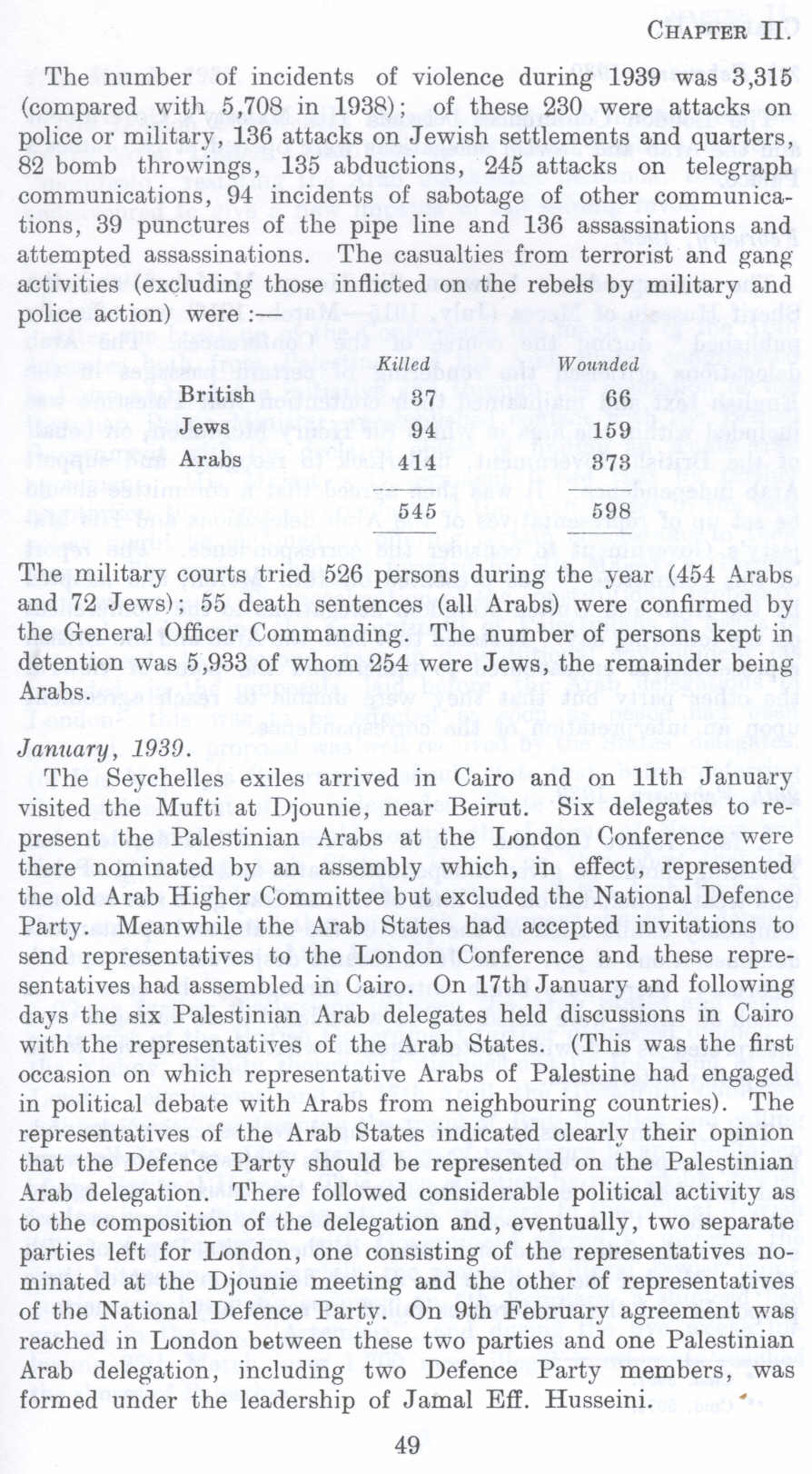| Prev | Next |  |
| Prev | Next |
| PalestineRemembered | About Us | Oral History | العربية | |
| Pictures | Zionist FAQs | Haavara | Maps | |
| Search |
| Camps |
| Districts |
| Acre |
| Baysan |
| Beersheba |
| Bethlehem |
| Gaza |
| Haifa |
| Hebron |
| Jaffa |
| Jericho |
| Jerusalem |
| Jinin |
| Nablus |
| Nazareth |
| Ramallah |
| al-Ramla |
| Safad |
| Tiberias |
| Tulkarm |
| Donate |
| Contact |
| Profile |
| Videos |
British Mandate: A Survey of Palestine: Volume I - Page 49. January, 1939, The Royal Commission, the Partition Commission, and the White Paper of May, 1939. |
Disclaimer
The above documents, article, interviews, movies, podcasts, or stories reflects solely the research and opinions of its authors. PalestineRemembered.com makes its best effort to validate its contents.


Post Your Comment
*It should be NOTED that your email address won't be shared, and all communications between members will be routed via the website's mail server.
The number of incidents of violence during 1939 was 3,315 (compared with 5,708 in 1938); of these 230 were attacks on police or military, 136 attacks on Jewish settlements and quarters, 82 bomb throwings, 135 abductions, 245 attacks on telegraph communications, 94 incidents of sabotage of other communications, 39 punctures of the pipe line and 136 assassinations and attempted assassinations. The casualties from terrorist and gang activities (excluding those inflicted on the rebels by military and police action) were :-
Killed Wounded
British 37 G6
Jews 94 159
Arabs 414 373
--
545 598 The military courts tried 526 persons during the year (454 Arabs and 72 Jews); 55 death sentences (all Arabs) were confirmed by the General Officer Commanding. The number of persons kept in detention was 5,933 of whom 254 were Jews, the remainder being Arabs.
January, 1939.
The Seychelles exiles arrived in Cairo and on 11th January visited the Mufti at Djounie, near Beirut. Six delegates to represent the Palestinian Arabs at the London Conference were there nominated by an assembly which, in effect, represented the old Arab Higher Committee but excluded the National Defence Party. Meanwhile the Arab States had accepted invitations to send representatives to the London Conference and these representatives had assembled in Cairo. On 17th January and following days the six Palestinian Arab delegates held discussions in Cairo with the representatives of the Arab States. (This was the first occasion on which representative Arabs of Palestine had engaged in political debate with Arabs from neighbouring countries). The representatives of the Arab States indicated clearly their opinion that the Defence Party should be represented on the Palestinian Arab delegation. There followed considerable political activity as to the composition of the delegation and, eventually, two separate parties left for London, one consisting of the representatives nominated at the Djounie meeting and the other of representatives of the National Defence Party. On 9th February agreement was reached in London between these two parties and one Palestinian Arab delegation, including two Defence Party members, was formed under the leadership of Jamal Eff. Husseini.
Page 49